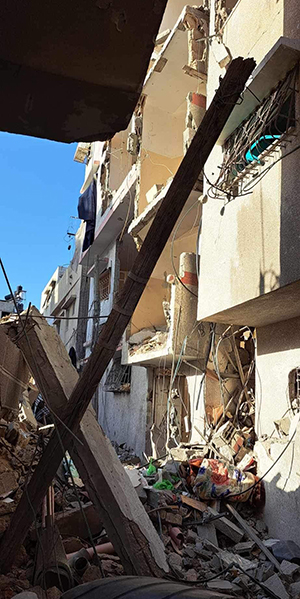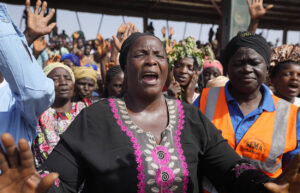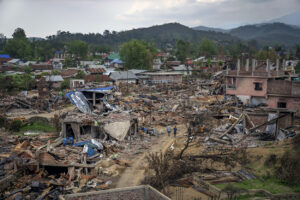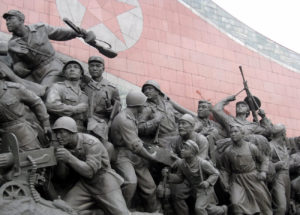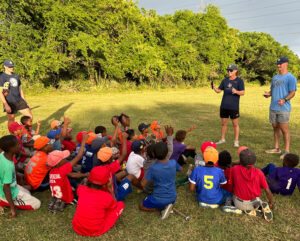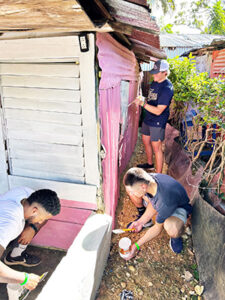Baptists from Ukraine seek strategic partners in U.S.
PLANO—The future of religious freedom in Eastern Europe depends on Ukraine’s ability to engage the support of “strategic partners” in the West—both in churches and in government, leaders of the Evangelical Baptist Union of Ukraine told a North Texas audience.
President Valery Antonyuk and Vice President Igor Bandura addressed a group Feb. 5 at the Hope Center in Plano—headquarters for multiple Christian nonprofit organizations—to seek support for their nation and its churches.
Speaking through an interpreter, Atonyuk described Russia’s assault on Ukraine as an “evil project” to destroy freedom, including religious liberty.
“We are looking for ideas, projects and partnerships with our fellow Christians in the United States, because together we can stop this evil project,” he said. “Our Lord Jesus Christ will prevail. We are praying for this, and we are looking for partners who will stand with us.”
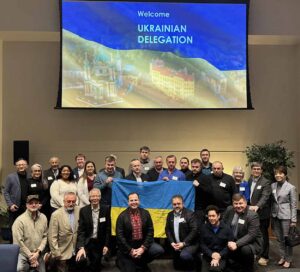
The faith leaders who addressed the assembly in Plano were part of a larger delegation of Ukrainian public officials and business leaders visiting the United States.
When the group began making plans in September for the trip to the United States, they hoped to look ahead and focus on ways “strategic partners” in the United States could help Ukraine rebuild after the end of armed conflict, including church-to-church partnerships, Bandura said.
“We’re all looking for a better future for Ukraine. … Of course, we dreamed that the war would be coming to an end,” he said. “Unfortunately, that is not the case. The war is still going on. We cannot see how, when and where it will be finished.”
The Ukrainian Baptist leaders spoke in North Texas less than 24 hours after the U.S. Senate announced a bill linking appropriations to Ukraine and Israel with border security, but Speaker Mike Johnson—a Southern Baptist—declared the measure “dead on arrival” in the House of Representatives.
“Honestly, we are confused by the delays in the American Congress in deciding to provide financial support for Ukraine,” Bandura said. “It is very painful, in fact, because it is not just about the money. It causes many deaths.”
‘No religious freedom’ in long-occupied areas
The experience of Christians in areas occupied by Russia—such as the Russian Federation’s invasion and annexation of the Crimean Peninsula in 2014—reveal what could happen in all parts of Ukraine if Russia prevails, he warned.

“There is no religious freedom. Pastors are kidnapped, tortured and interrogated. People are frightened, and they leave as soon as they can,” he said.
If Russia succeeds in taking over Ukraine, it will mean “the end for Baptist churches, the end for evangelical churches” in the country, Bandura said.
In turn, it will have an impact on all of Eastern Europe, because Ukrainian Christians historically have been a missionary-sending people, he added.
“After the collapse of the Soviet Union, the Ukrainian churches sent at least 500 missionaries to Russia,” he said. “We wanted to be a blessing to this country. And in turn, Russia comes to destroy us and take away our freedom.”
Bandura appealed for the support of Christians in the United States.
“We need your help. We need your prayers. We need your support,” he said.
Many predicted Ukraine would fall to Russia in two or three days after the invasion began in February 2022, Bandura observed. Instead, two years later, Ukraine continues to resist, he said.
“The God who has brought us this far will not abandon us,” Bandura said. “God has something special in mind for Ukraine.”
Pavlo Unguryan, an evangelical leader and former member of the Ukrainian Parliament, said Christians both in the United States and Ukraine are “living in historic times.”
If Ukraine can prevail against Russian aggression and protect its freedom, Christians will have both the responsibility and opportunity to rebuild the nation and shape its future direction, said Unguryan, the son of a Baptist pastor.
“Right now, we really need help. The Evil One wants to destroy Ukraine,” he said.

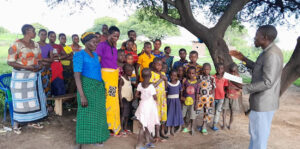

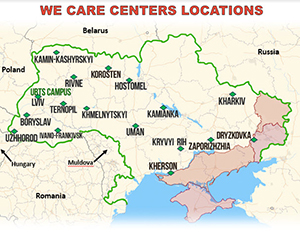 WeCare Centers were launched out of Ukrainian Baptist Theological Seminary’s humanitarian work in the early months of the war, when the seminary paused classes, housed refuges and served as a distribution hub for supplies. The 334 partners supporting WeCare centers served nearly 140,000 individuals in May to November last year, the
WeCare Centers were launched out of Ukrainian Baptist Theological Seminary’s humanitarian work in the early months of the war, when the seminary paused classes, housed refuges and served as a distribution hub for supplies. The 334 partners supporting WeCare centers served nearly 140,000 individuals in May to November last year, the 